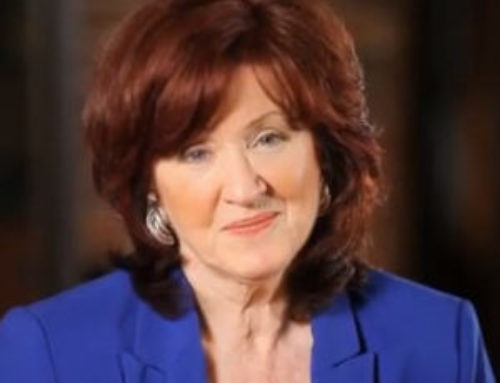Have you ever heard of the old piece of parenting advice, “Spare the rod and spoil the child?” Forget about it!
That kind of mindset was used way back when the role of children was primarily “free labor for the farm.” Today, things are a little more complex! But that doesn’t mean that children shouldn’t be taught discipline.
Discipline My Child-Best Guide line
Discipline is the art of teaching kids how to be strong, independent, empathic, and trustworthy members of a family, alongside society in general. It requires parents to have a high degree of emotional intelligence to shape their children into emotionally strong, secure, confident adults.
The old model of teaching children (Spare the rod, yadda yadda) emphasized blind obedience to authority figures. Thankfully, this philosophy has been supplanted by one that emphasizes creating self-sufficient and empathic adults.
As parents, you are your children’s first teacher and living examples of emotional intelligence and how relationships work. That’s a lot of responsibility, so let’s take a look at some suggestions on how you can be the best parents you can possibly be:
Be Calm
One of the best pieces of parenting advice I ever received was from, believe it or not, a scuba diver!
He was teaching me to become aware of when I was stressed or experiencing a shot of adrenaline due to an accident or the unexpected. Once your body gives itself a rush, it shuts down logical thinking and puts you into crisis mode. The blinders go on and reactions are fast and furious. Underwater, this can be deadly. In parenting, the stakes are almost as high.
When something happens with your kids, you need to stop, breathe, think, and then act. The spontaneity of kids can trigger instant reactions from parents, especially if they are already emotionally exhausted from not eating well or getting little sleep due to the baby waking up in the middle of the night.
As a parent, when you feel the instinctive rush to react, first count to ten to give your emotions and logical mind a chance to catch up to the situation at hand. The bad reaction on your part can take a bad situation and make it worse.
This is a lesson I had to learn fast. Having twin boys, situations often developed where I didn’t see what happened. I would just hear loud crying. My instinct was to fly into action, but I quickly discovered that I shouldn’t make an immediate judgment until I got a better grasp of the situation.
First, I always looked to secure the scene and make sure everyone was ok. I asked the other child, “What happened?” in a relaxed and calm voice. Usually, their first answer was, “It was an accident,” or “I didn’t do anything,” as children are inherently afraid of blame. This is the place where my cool, calm, and non-judgmental tone was critical to getting to the bottom of what happened.
By being calm and figuring out the situation, you’re going to be showing trust in your children. Being able to get the truth out of your kids is the greatest skill a parent can learn, and requires trust. Yelling, blaming, or putting the child down will not help the situation, their trust level, or their self-esteem. All it does is make a parent feel temporarily better as they could vent some anger. But that’s short-term thinking that can have long-term effects on how they behave in the future.
Set an Intention
What is your vision of yourself as a parent? When your kids are eighteen and leaving for college, how would you want them to describe your parenting to their friends?
Discipline is about teaching and instilling lessons. What are the lessons you want them to learn? What is the best way you can reinforce those lessons? It’s essential to set yourself that kind of intention with your parenting. If you view your children as a nuisance, they will likely act like one. If you see them as trustworthy and honest, constantly challenging their capabilities, they will rise to the challenge.
Whenever a child has done something wrong, instead of just saying, “Don’t do that,” take the time to analyze their behavior, then share with them where their mistake may lead, and the danger or the consequences you wish them to avoid.
Use Rewards. Never Bribe.
The golden rule of parenting is, “A doesn’t happen until B is complete.” For example, “You can play with your electronics when your homework is done.” Or “You can have money for the gift shop when you earn it with chores around the house.”
Some people might classify this as “bribing” your children. I strongly disagree. A bribe is when you pay a reward in advance. However, a reward comes only after they have maintained appropriate behavior in a situation.
Here’s the thing, bribes never work with kids, but rewards do. Always keep in mind any rewards, perks, and special activities you are going to do later and make sure any not-so-fun task is done first. For example, if my wife and I are planning to take the kids to the movies over the weekend, I will ask them to clean their room before we go. Never waste a reward because there is always something new to do!
Never Threaten
Never, ever threaten to do something that you are not prepared to follow through on. The moment you make a threat and not carry it out, all your requests instantly become optional and will be tested repeatedly by your children.
Discipline in the face of poor behavior needs to be clean, swift, and felt immediately. A short and fast correction is more powerful than a huge threat, while also being proportionate to the behavior.
Redirect Their Punishment
However, this kind of punishment sometimes doesn’t work with younger kids. Children don’t fully understand the concept of time until they are in their teens. For example, I know a mother who threatened to take away her children’s iPad for a day, a week, and finally a month. It didn’t work. Her child was emotional and needed a punishment, but also needed empathy and a redirect. Threatening “No iPad” did not shift her child out of their deeply emotional state of anger or frustration.
This is why it’s important to redirect a child to positive behavior after a punishment. Before redirecting, take a moment and check-in with the child’s emotional and physical state. Were they tired from missing a nap or staying up late the night before? Were they hungry, physically uncomfortable, or perhaps just wanted some of your attention? Often, kids act out because it’s the only surefire way to get you to feel you totally present with them. You do not want to reinforce their negative behavior in the moment, but once the storm passes, schedule a date or activity to spend more time with the child. Find a victory or accomplishment to celebrate and reward. The better you get at that, the less discipline you will need with the child.
I believe that all parents do their best, with some doing better than others. There is no such thing as a perfect parent. Enforcing the rules takes discipline in the parents and creates discipline in the child. If you are not happy with your children’s behavior, never blame it on them being lazy or stupid. They simply need more guidance and clearer rules. They then need those rules to be fairly enforced, with the possibility for forgiveness to show them a positive path forward out of any negative situation.
Mind you, we’re only scratching the surface here when it comes to raising children. I’m going to be sharing more thoughts about it next week, so stay tuned!
How Discipline Works When You’re Raising a Child: Part 2
Last week, I took a deep dive into how discipline plays a significant role in raising children. You might instantly think that means, “Kids need discipline to be well behaved,” but that isn’t quite the “moral of the story.” In fact, parents need discipline too!
If you don’t have the discipline to create and follow certain parenting guidelines that you set up for yourself, then your children won’t have the necessary framework needed to develop discipline themselves. If you want to see what I mean by this, please check out last week’s blog. But for now, let’s keep going and dig deep into the role discipline plays in child-rearing!
Children Need Presence, Not Presents
Please excuse the little bit of wordplay there, but it’s very true!
All parents are afraid of spoiling their children or making them soft by giving them whatever they want, whenever they want it. By withholding attention, they rationalize that not spending time with their kids or never buying little treats will make them independent. Instead, they believe that occasionally taking big trips or buying large presents on the winter holidays will make up for a lack of quality time spent together.
Unfortunately, this is flat out wrong. Kids need your presence. They need you to hold space for them big enough for them to explore and find their edge, yet with boundaries to know you are there to catch them if they fall. To do that, you must connect with them emotionally, meet them at their level, and show you understand their world and what they are feeling.
Very young kids especially require connection with you. Please keep in mind that small children can’t regulate their own emotions. Instead, you need to be there to redirect and manage their emotions until they are strong enough to do it themselves.
I’ve found that the magic ratio is 5:1. You need to be present, notice, or compliment kids five times for every one correction you want to make to their behavior. Doing it right is a slow, ongoing process of moving ahead slowly, one step at a time.
Ignoring requests for attention will only create a desire to nag, pester, and escalate the drama until they feel you understand their needs/desires, even if those desires are not appropriate in the moment. They want to be heard. And “hearing” children and what they want is NOT spoiling them.
Reward Honesty and Empathy
Imagine that your boss demands unquestioned obedience daily, no matter how unfair they were behaving. Sounds like a terrible job, right? Well, there are many out there who subscribe to similar parenting tactics.
When compliance is forced through unquestioned obedience, then withholding, lying, and manipulation become the only tools you have to regain one’s personal power in a powerless situation. This is obviously behavior that you want to avoid encouraging in your children.
Teaching your kids to be honest with you is probably one of the hardest tasks of parenting. Kids are going to mess up, get carried away, hurt each other accidentally, break stuff, and push boundaries. Before a child trusts you with the full truth, they need to trust that you are not going to freak out and yell at them in reaction to their situation.
Most parents are like Tom Cruise in A Few Good Men, “You can’t handle the truth.” First, find out what happened. Deal calmly with the situation at hand and worry about using discipline to teach a lesson only after the situation is under control.
For minor infractions, I tell my kids they will always be in a lot less trouble if they tell the whole truth up front instead of me catching them in a lie later. After all, withholding information is also considered lying by omission. If you can connect emotionally with your children, then you can pretty easily tell if they are lying, withholding, or telling the truth (as they perceive it). When I feel uncertain if they are telling the truth, I tend to give them the benefit of the doubt. In other words, I trust my gut.
I have had good experiences asking my boys to go and “meditate” on the situation. It gives both parties time to cool off (more than just counting to 10). I ask them what was wrong about the situation and how they think the other person in the situation felt?
I practice repeating back to the child what they told me to show my active listening skills. This gives them an opportunity to clarify anything I might have misunderstood or assumed incorrectly. In all situations, especially in conflicts, being heard and understood are the most important parts. Many of the arguments between my boys are due to neither one really listening or understanding the other.
Lead by Example
In the end, I always keep in mind that my kids are like karmic video recorders, imprinting my responses on themselves to learn how to handle and solve situations in the future. Countless times, I have felt myself react in a way that reminded me of my mother or father. However, there are several reactions my father had that I would never want to emulate.
As a child, I remember knocking over a glass of milk and watching it roll off the table and break on the floor. He was furious and upset that I had ruined dinner with a broken glass. I knew in my heart that it was only a clumsy accident and wasn’t malicious in the least. I also knew that I never wanted to act like that when I was older.
And so, I accept the responsibility of setting a good example in my parenting and my relationship with my wife. I know my kids are watching me to learn how to handle conflict, to treat a spouse, and to be a good parent.
While I do not believe there is a mystical bank account recording my good and bad deeds to atone for at some point in the future, I do see how the way I live my life directly affects what my children learn and how they will live their lives. Is this something that you’ve felt as a parent (and spouse)? If so, please feel free to comment with your experiences below!








Leave A Comment